Rents In Iran Increase By 40% In Three Months
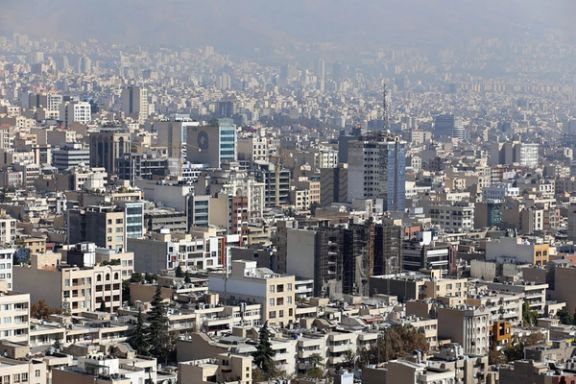
An economic daily says housing prices and rents in Tehran have jumped in the past three months by at least "40% compared to the previous quarter.

An economic daily says housing prices and rents in Tehran have jumped in the past three months by at least "40% compared to the previous quarter.
Donyaye Eghtesad (World of Economy) said in a report on Saturday that in the first weeks of Iranian new year (starting March 21), the number of newly built units offered for sale increased slightly, but the housing market transactions did not return to normal.
The daily also added that "the proposed prices are much higher than the expectation of the buyers".
Meanwhile, Jam-e Jam daily, which is owned by Iran's state broadcaster, reported that "the government has lost the ability to monitor the chaotic housing market."
"In less than two and a half months, the relocation of tenants will reach its peak, but the plans of the government and parliament to control the rental market have failed, with many tenants more worried about the unreasonable increase in prices," stressed Jam-e Jam.
In the meantime, Saeed Lotfi, a member of the board of directors of the Tehran Real Estate Consultants Union noted that “the government presents plans that are not based on expertise.”
Rents and home prices have climbed as much as inflation and the value of the US dollar have risen in recent months, reaching a level that an ordinary worker must hold two or even three jobs just to afford basic housing. Workers make between $100-150 a month, calculated by the current rate of the dollar which is 510,000 rials.
Food prices have increased between 70-100 percent in the past 12 months on top of high inflation in the previous year.
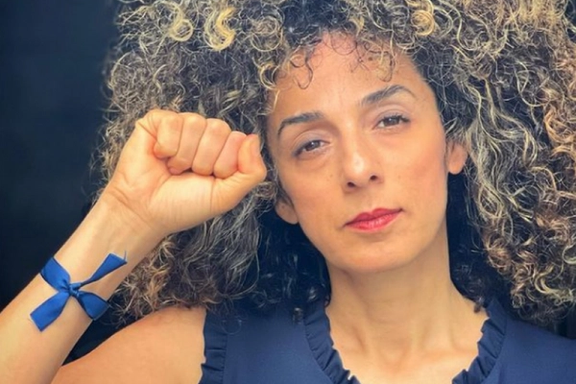
A federal court in New York has sentenced Niloufar Bahadorifar, an Iranian-American woman, who had pleaded guilty in a plot to kidnap opposition figure Masih Alinejad, to four years in prison.
Bahadorifar, had also confessed to conspiring to break US economic sanctions on the Islamic Republic by helping to provide money to a private investigator, who was tasked with monitoring Alinejad.
During the court session on Friday, Bahadorifar apologized to Alinejad calling her “a hero to all Iranians.” However, according to Alinejad, the judge realized the defendant was trying to abuse all Iranian women to show herself as a "victim of the Islamic Republic and the patriarchal system".
“Niloufar Bahadorifar willfully violated sanctions and knowingly provided financial support to Iranian intelligence assets, who in turn were engaged in a plot to kidnap an Iranian human rights activist living in the United States whom the Iranian government has sought to silence for years,” said US Attorney Damian Williams.
Alinejad, who campaigns against mandatory hijab and other rights issues was the target of an international kidnapping plot orchestrated by Iran’s intelligence network in 2021. She has a considerable following in Iran especially among women with 8.8 million followers on Instagram and 721,000 on Twitter.
US authorities charged an Iranian intelligence agent and some others with attempting to abduct Alinejad and take her back to Iran, but the regime in Tehran denies the charge and the four defendants, who all reside in Iran, have never stood trial.
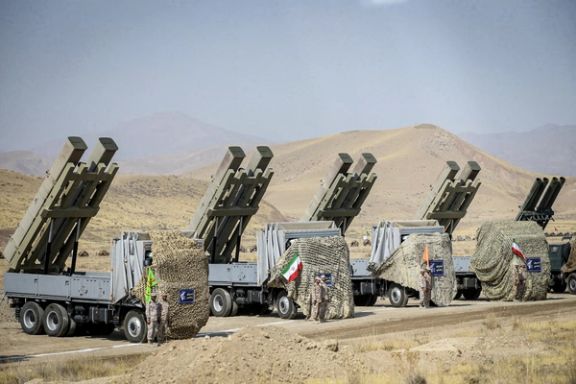
A former Iranian lawmaker says "the Islamic Republic expected regional countries to recognize it as the gendarme of the region just like before the 1979 revolution."
Ahmad Ardestani told Rouydad24 website in Tehran that "regardless of Iran's attempts, regional countries shaped their attitude after the Islamic revolution based on the United States’ view about the new Iran."
"The Islamic Republic created the Resistance Front to showcase its regional hegemony." Resistance Front is the regime’s officials' jargon about the anti-US alliance it has created in the region, by supporting militant proxy groups in Iraq, Yemen, Lebanon and Syria.
According to Ardestani, the Islamic Republic uses the ‘Resistance Front’ to portray Tehran as a regional superpower. He said, no matter who likes it or not, Iran is at loggerheads with the United States and that explains its interaction with countries such as Russia and China.
"Unfortunately, Europe and the United States pushed Iran toward the East with their ‘maximum pressure policy’. Now Iran has strategic ties with Russia and China while it has failed to maintain a logical relationship with the West," Ardestani said.
Meanwhile, Mehdi Motaharnia, an academic in Tehran questioned the concept of regional supremacy. "Iran's regional influence cannot help Tehran if it is not used to create a peaceful life for Iranians." What the Iranian government needs at the current juncture is legitimacy, he reiterated.
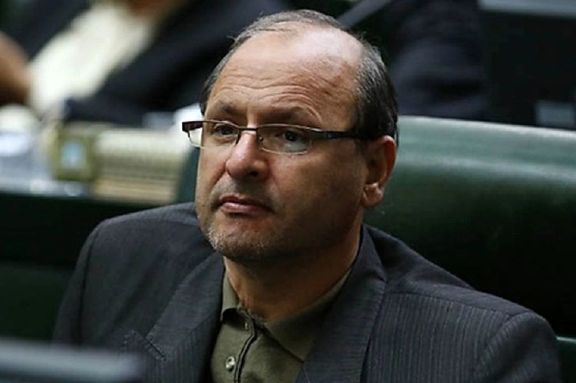
Speaking about the interests of the Arab side, Ardestani said that after the suspected Iranian attack on Saudi oil facilities in September 2019 and Iran’s continuing support for the Houthis in Yemen, the Riyadh as well as others in the region including Kuwait, Bahrain and the UAE, concluded that instead of “bribing the United States” for protection, they should get closer to Tehran.
Ardestani added that in such a situation Iran needs to establish logical relations with the West. However, he failed to observe, or living in Iran prudently skipped the fact that Tehran’s policy toward the West is mainly driven by Supreme Leader Ali Khamenei’s unwavering anti-US and anti-West ideology.
Elsewhere in the interview Ardestani said that both Saudi Arabia and Iran benefit from their recent agreement brokered by China, as this makes Riyadh immune to US blackmails, and gives Tehran an opportunity to present itself as a confident and stable state. He further characterized Iran and Saudi Arabia as the two wings that keep the region stable.
Critics of the Biden Administration say that its cold attitude toward Saudi rulers pushed Riyadh to diversify its foreign policy options, by restoring ties with Tehran and eliminating a constant threat.
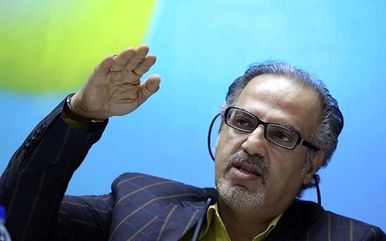
He expressed hope that the agreement with Saudis could be a prelude to a nuclear deal with the West. Ardestani said in a controversial comment that "Now when Iran has stopped just short of making the [nuclear] bomb, it is the best time to revive the JCPOA."
He added that Iranian expats wish to suggest to the US Congress and others that Iran is not stable as protests are raging in the streets, but the West's intelligence agencies have reassured governments that the claim about Iran's instability are not true.
However, Motaharnia highlighted the instability of the regime. "If you have international influence and even if you are a regional superpower, but your society is not peaceful and is in pain, not only your apparent supremacy is not important, but it is useless and probably only good for propaganda."
Motaharnia reiterated that the Iranian government is facing multiple challenges that have eroded its legitimacy and have made it isolated in the region and within the international community. These challenges are exerting pressure on the government as the people want to separate the state from religion and criticize the government for its inefficiency.
He said Iran needs to change, but changing is difficult for a government which sees itself over and above everything else in the society.
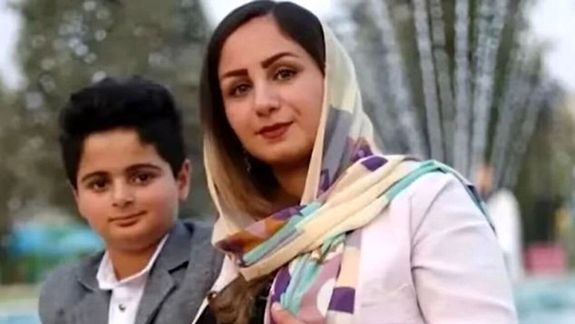
Iran has sentenced a protester turned rebel to death for the killing of a nine-year-old during unrest in November, although the victim’s family insists he is innocent.
The judiciary’s news website, Mizan, said Friday Abbas (Mojahed) Kourkour has been sentenced to death for the killing of Kian Pourfalk in Izeh in southwestern Iran on November 15, adding that the sentence could be appealed.
Kian and his family were targeted by plainclothesmen during a night of protests in Izeh while they were in their car. Kian’s father was also paralyzed as a result of serious injuries he sustained during the attack.
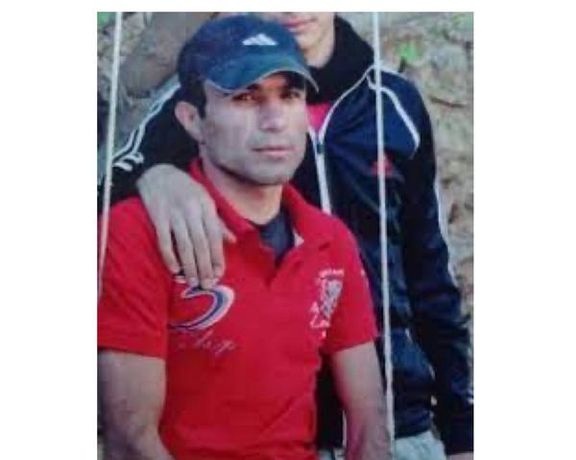
His mother, Zaynab Molaei-Rad, who was also in the car, has always insisted that it was plainclothes agents, not Kourkour and his friends, who sprayed their car with bullets and killed her son.
A former lawmaker from Izeh, Hojjatollah Darvishpour, confirmed the account Kian’s mother gave at her son’s funeral and said she had provided all the details about those who shot and moved her son and husband to the Red Crescent and then hospital.
Belgian politician Tomas Roggerman has accepted political sponsorship of Kourkour.
Kourkour’s family also insist that he was not anywhere near the site of the shooting and was tortured into “confessing” to the shooting in which Kian was killed. His mother, Golanbar Kourkour, has appealed to Iranians to help prevent his son from being innocently executed.
Six others including three other children, were also shot dead in Izeh during the same night but authorities claim the attacks were perpetrated by “terrorists” who wanted to discredit the regime.
Shocked by the indiscriminate killing of children including Kian during nationwide protests that began in mid-September many Iranians began to call the Islamic Republic a “child-murderer regime”. Tens of other children, including a two-year-old, were killed by security forces during the protests.
Kourkour’s mother appealing to Iranians to save his son’s life.
Kourkour and three other men, their families claim, armed themselves to take revenge on the government for the killings of November 25 in Izeh and hid in a village near the city but were ambushed by security forces four days later.
During an hours-long standoff in which security forces used heavy machine guns and anti-tank grenade launchers, two members of the group were killed and Kourkour and another man were arrested.
Over 500 protesters and bystanders were killed by security forces during the protests across Iran. Authorities have only taken responsibility for the killing of one protester, the 27-year-old Mehran Sammak, who was shot by a senior police officer in his car in northern Iran on November 29.
The regime executed four young men for their alleged role in the killings of government agents in December and January after hasty trials.
Kian’s mother with the mother of the man she says is wrongfully accused of killing her son.
The accused were not allowed to have access to defense lawyers before and during their trials. Many believe that protesters’ death sentences were based on “torture-tainted confessions”. Several other protesters have been sentenced to death in similar circumstances.
Death sentences based on torture-tainted confessions of the accused are not uncommon. Iran International has learned that currently two men, 19-year-old Farhad Beigi Garousi and 34-year-old Gholamreza Rasaei, have been tortured to confess to the killing of an intelligence official in Sahneh in Kermanshah Province in western Iran on November 18.
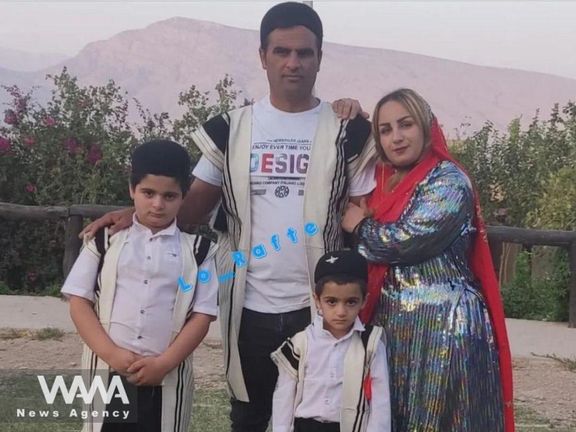
Locals say the officer Nader Beyrami was killed in a clash with mourners when he and his forces raided a funeral ceremony for a local poet and musician to prevent the ceremony from turning into anti-government protests.
Rasaei’s family say they have witnesses who will testify that he had not been present at the scene of the killing.
The deceased and both accused belong to the Yarsan religion which has many followers among the Kurdish population of the region. Many Yarsanis hide their religion for the fear of persecution.
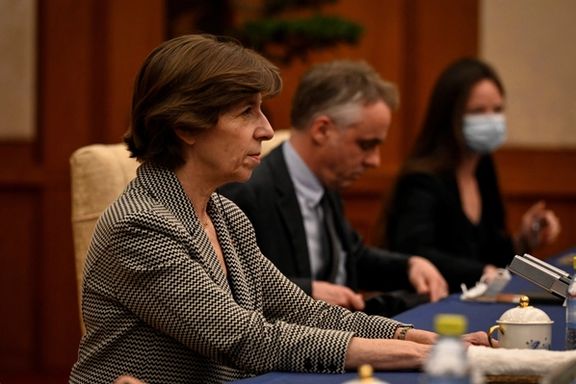
French and Iranian foreign ministers held a face-to-face meeting in Beijing Friday, with varying accounts emerging from the discussion.
While France’s Catherine Colonna brought up the issue of French citizens “arbitrarily detained” in Iran, her Iranian counterpart Hossein Amir-Abdollahian urged France “to respect and uphold the rights of French citizens who protest.”
The meeting lasted two hours and was “useful” according to a tweet by Amir-Abdollahian. He said that bilateral relations, Iran’s “recent agreement with Saudi Arabia to restore relations, Ukraine, regional issues, including Palestine and Lebanon, lifting of sanction [on Iran] and our country’s peaceful nuclear program” were discussed.
The meeting was the second high-level meeting held between the Iranian foreign minister and a senior European official since talks to revive the JCPOA nuclear deal reached a deadlock last September.
In December the European Union foreign policy chief Josep Borrell met with Amir-Abdollahian in Jordan.
Amir-Abdollohian was in Beijing leading separate reconciliation talks between Iran and Saudi Arabia following a Chinese brokered deal in March.
A French statement said that Colonna "renewed her urgent demand for the immediate release of the six French citizens who Iran is arbitrarily detaining."
It is not clear to what extent the nuclear deal or Iran’s military support for Russia were focal points in the meeting. Europe and the United States have strongly condemned Tehran’s supply of weapons to Moscow that are being used to attack civilian targets in Ukraine.
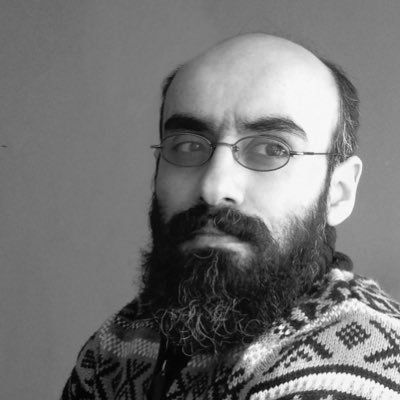
Iranian journalist and activist Hossein Razzagh, imprisoned in Tehran's notorious Evin prison, has had his sentence extended by four years.
Razzagh’s twitter account published an update on Thursday that Branch 26 of the Revolutionary court has issued a new sentence on charges of “conspiring and colluding with the intention of disrupting the security" of the country and "propaganda against the system.”
The charge of disrupting security was because of Razzagh’s managing a popular room on the social audio app clubhouse, and the charge of propaganda against the regime is for his open support for the Baha’i community, one of the most persecuted religious minorities in Iran.
The brave political activist was arrested by security forces in the northern Iranian city of Amol on August 21, less than a year after his release on $67,000 bail (20 billion Iranian Rials at the time) for his previous criticism of the regime.
Another charge against him was “publishing lies with the intention of disturbing the public mind," which he is accused of for tweets defending Sepideh Rashno, a woman who was arrested for protesting mandatory hijab rules before the death in custody of Mahsa Amini.
Razzagh, who has been detained many times in recent years, was one of the founders of a virtual chatroom in the clubhouse called "Freedom Square," where participants were critical of the regime. He claims he was forced to remove the room from the platform under pressure and threats by the Intelligence Ministry.